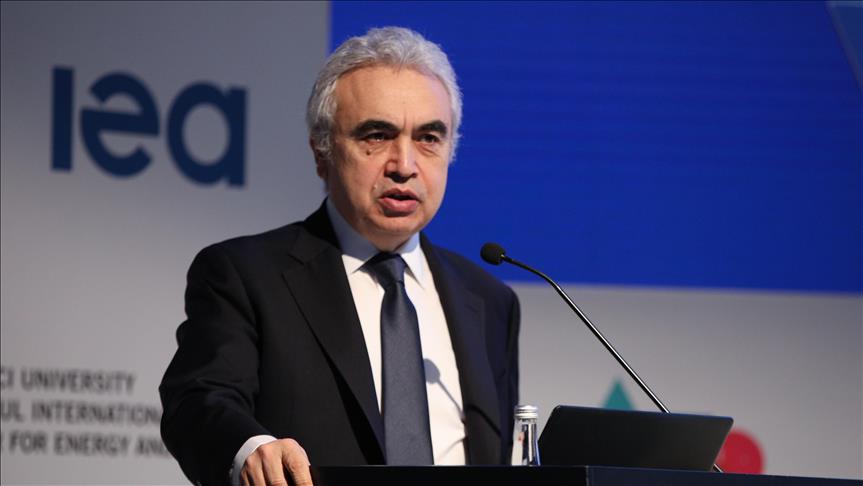

By Anadolu Agency
Saudi Arabia’s decision to reduce oil production by 1 million barrels per day (bpd) in July, with the possibility of further extension, will worsen an already-expected imbalance in the oil market, Fatih Birol, the head of the International Energy Agency (IEA) said on Monday.
“Before the [OPEC+] meeting, we were already thinking that the second half of this year, the markets would be tight, which means there could be a possibility that we will see oil prices go up,” Birol said warning that the group’s decision “increases this possibility a lot.”
His remarks came at the three-day 79th World Air Transport Summit held in Istanbul.
On Sunday, the Organization of Petroleum Exporting Countries (OPEC) and its allies, known as OPEC+, agreed to not only maintain this year’s output limits but further extend them until December 2024.
The group’s swing producer Saudi Arabia surprised markets with an additional voluntary production cut of around 1 million bpd in July. The country said its one-month output reduction could also be extended.
The OPEC+ group’s announcement came following its decision in April to implement a collective output cut of around 1.6 million bpd on top of its cut of around 2 million bpd in October of last year.
Explaining that there was an impact imbalance and deficit in the markets even before this decision on the back of rebounding demand after pandemic, Birol reiterated that the oil producing group’s decision provided upward pressure for the prices.
“However, China is the main uncertainty here,” he said, noting that global oil demand will increase by 2 million bpd, 60% of which is expected to come from China.
Birol said the countries that suffer most from high oil prices are developing countries such as India and Africa which are dependent on imported oil.
He underlined that a stable oil market would be “in the interest of everybody”.
We use cookies on our website to give you a better experience, improve performance, and for analytics. For more information, please see our Cookie Policy By clicking “Accept” you agree to our use of cookies.
Read More